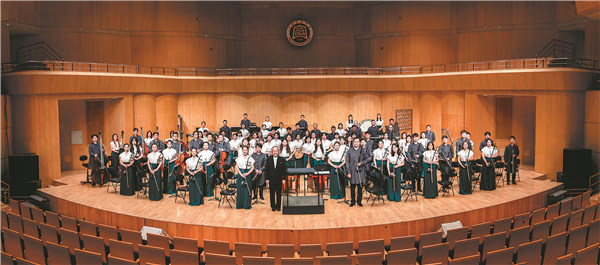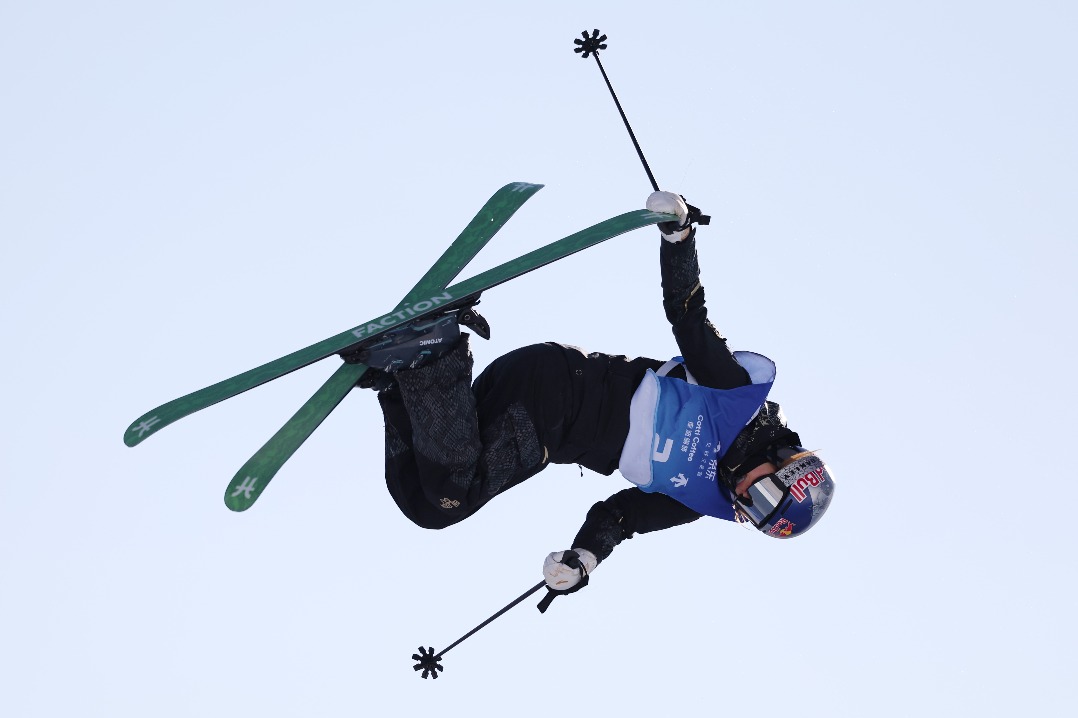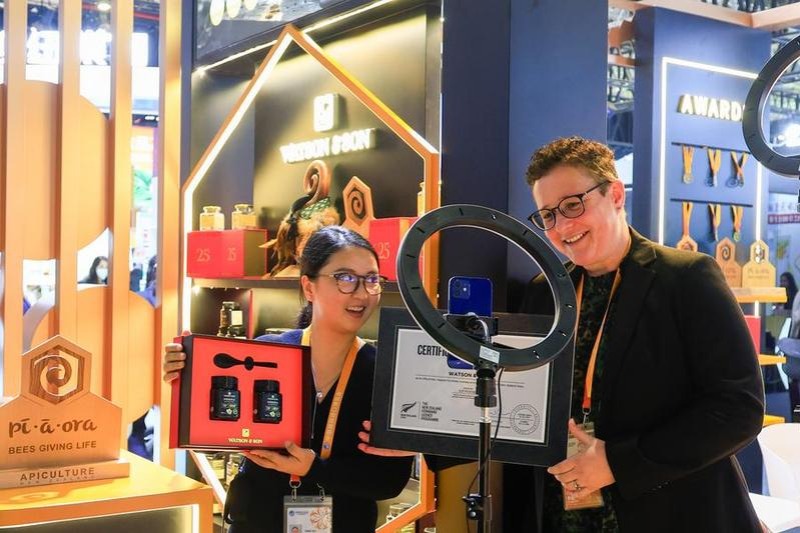Sunday morning concert program highlights 'sound of China'
By Chen Nan | China Daily | Updated: 2024-01-05 07:12

Traditional Chinese music will be highlighted at Beijing Concert Hall in 2024.
Six ensembles featuring exponents of traditional Chinese music will deliver performances every Sunday morning, according to Zhang Yilin, the venue's general manager.
Each concert will last about 70 minutes, combined with introductions of repertories by musicians of each ensemble.
According to Zhang, Beijing Concert Hall, which was built during the 1980s, was the first in the country to stage classical music. Initiated by late Chinese conductors Li Delun (1917-2001) and Yan Liangkun (1923-2017), the concert hall opened in 1986 with a performance by the China National Symphony Orchestra.
"The venue has gained a large patronage in the capital thanks to the concerts staged by classical musicians from around the world. Now, traditional Chinese music has grown in popularity among the younger generation, so we decided to launch this series of performances celebrating traditional Chinese music and Chinese classical music works," says Zhang, adding that besides music, traditional Chinese poetry, calligraphy and painting will also be featured during the guidance sessions of each concert.
"The concerts will be staged in the form of chamber music, with fewer musicians onstage demonstrating the sounds of the Chinese musical instruments," says Zhang. "We plan to present the concerts each Sunday morning, hoping to offer a fun time for families."
The first concert of the series will be performed by the Beijing Chinese Orchestra on Jan 14, playing music works adapted from popular Chinese folk songs, such as Deep Night, Exploring Clear Water River and My Memories of Old Beijing.
Appealing to the young audience, On Jan 28, the Beijing Chinese Orchestra will also deliver a performance of pieces adapted from popular movie soundtracks, computer games and musicals.
On March 10, principal musicians of the orchestra will gather to stage a concert featuring ancient, classic Chinese music pieces, such as A Moonlit Night on the Spring River, a signature pipa (a four-stringed Chinese lute) piece of the Chinese classical repertoire, and The Moon Reflected on the Erquan Spring (Erquan Yingyue), a famous erhu (two-stringed fiddle) piece.
Guqin, a seven-stringed plucked instrument, will be highlighted in a concert on May 19 featuring guqin player Zhang Xuguang from the China Broadcasting Performing Arts Troupe. Other traditional Chinese musical instruments, such as xiao (Chinese vertical flute) and huqin (Chinese fiddle), as well as the Western musical instruments, cello, piano and harp, will be played to deliver new interpretations of traditional Chinese music pieces, including Three Stanzas of Plum Blossoms.
The Chinese Orchestra of China National Opera and Dance Drama Theater will play four concerts, with each one highlighting a category of traditional Chinese musical instruments, such as wind, string, plucked and percussion instruments.
"When we talk about 'the sound of China', we want to introduce these ancient Chinese musical instruments to the audiences, not only because of the beautiful sounds of those instruments, but also because of the history and culture behind them," says Luan Dong, head of the orchestra. "The sounds of Chinese musical instruments are colorful and versatile. Some of the instruments look simple, but require great skill and technique. That's why we plan to showcase the distinctive sounds of different types of instruments rather than presenting large ensembles onstage."
Two top Chinese music schools will also participate in the series: the Central Conservatory of Music's Chinese Chamber Orchestra and the Chinese Music Orchestra of the China Conservatory of Music.
According to Chen Bing, conductor and teacher of the Central Conservatory of Music, who will take part in the performances of the Central Conservatory of Music Chinese Chamber Orchestra, the school established its department for traditional Chinese music in 1950 — a year after the institution was founded — and launched courses covering nearly all the major traditional Chinese musical instruments, such as pipa, erhu, guzheng (a zither-like stringed instrument), and suona (a double-reed woodwind instrument).
"All the members of the Central Conservatory of Music Chinese Chamber Orchestra are award winners, who represent the younger generation of traditional Chinese musicians," says Chen.
"Thanks to social media, a greater number of people are enjoying traditional Chinese music and some traditional Chinese musicians, especially the younger ones, have gained a large fan base. We want to showcase the beauty of Chinese music with each performance during the series."
























